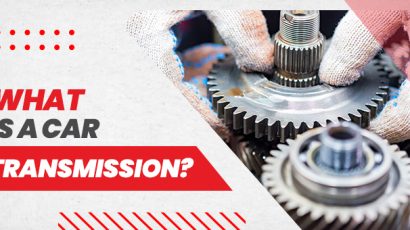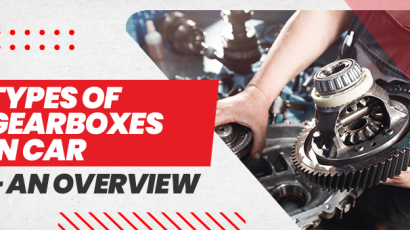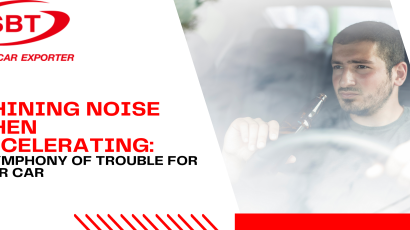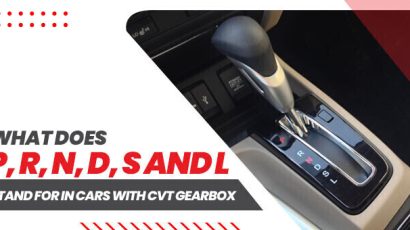
Many drivers dread the thought of transmission trouble. It conjures images of expensive repairs and a car stuck in limbo. But before you resign yourself to worst-case scenarios, consider this: the problem might not be your transmission at all! The torque converter, a crucial component nestled between the engine and transmission, can also be the source of your woes. Gearheads, buckle up because this article will provide you with the information to identify the problem and get your car working smoothly again. So, how can you differentiate a defective torque converter from a damaged transmission?
Understanding the Symphony of Power:
Let’s take a step back and understand the roles these two play. The engine, your car’s heart, generates power. The transmission, like a skilled conductor, directs that power to the wheels at the optimal speed and gear. But there’s a gap between these two. That’s where the torque converter steps in. It acts like a fluid coupling, smoothly transferring engine torque (rotational force) to the transmission while allowing the engine to rev up to speed before engaging the gears. Think of it as a bridge between the powerful engine and the delicate transmission.
Symptoms of a Bad Torque Converter:
Now, how to tell if a torque converter is bad? Here are some telltale signs of a bad torque converter:
Shuddering: Feel a vibration when accelerating from a stop? This shuddering sensation can be a classic symptom of a worn-out torque converter clutch.
Slipping Transmission: Experiencing a lack of power or a feeling of the engine revving high without proper acceleration? This could indicate a torque converter that’s slipping failing to transfer power efficiently.
Delayed Engagement: Does your car hesitate to move when you shift into gear, particularly from a stop? This delay might be caused by a faulty torque converter not locking up properly.
Overheating: Transmission overheating can be caused by a failing torque converter generating excessive friction. Keep an eye on your temperature gauge!
Strange Noises: Whining or grinding noises during acceleration can point towards a failing torque converter bearing or internal component wear.
Symptoms of a Bad Transmission:
While a bad torque converter can mimic some transmission issues, a failing transmission itself presents a wider range of problems:
Hard Shifting: The transmission violently jerks between gears, making for a rough ride.
Slipping Gears: The car unexpectedly jumps out of gear or struggles to maintain a specific gear, causing erratic RPMs and loss of power.
No Engagement: The car doesn’t move even when you shift into gear, indicating a severe internal transmission malfunction.
Burning Smell: One indication that the transmission fluid is dangerously overheating because of internal friction in the automobile is a burning smell coming from the engine.
Check Engine Light: The ever-illuminating check engine light often accompanies transmission problems, urging you to address the issue.
When to Suspect Which:
Here’s a crucial tip to differentiate between the two: pay attention to when the problems occur. Torque converter issues often manifest at lower speeds during initial acceleration from a stop. Transmission problems, however, can happen at various speeds and when shifting gears throughout your drive.
Diagnosing the Problem:
While these symptoms can provide a good starting point, definitively diagnosing the culprit requires a professional touch. A qualified mechanic can perform a series of tests, including checking the transmission fluid quality, inspecting for leaks, and utilizing diagnostic tools to pinpoint the exact source of the problem.
Repairing the Damage:
Once the culprit is identified, repairs can commence. Replacing a bad torque converter is generally less expensive than a full transmission overhaul. However, since the torque converter sits within the transmission bell housing, accessing it often involves removing the transmission itself. Depending on the severity of the transmission’s condition, a mechanic might recommend replacing both components simultaneously.
Preventive Maintenance is Key:
The best way to avoid these costly repairs is through preventive maintenance. Regularly changing your transmission fluid and filter ensures optimal performance and longevity. Additionally, avoiding harsh driving habits like aggressive acceleration and towing heavy loads can significantly extend the lifespan of both your torque converter and transmission.
By understanding the roles of the torque converter and transmission, along with the signs of their failure, you’re well-equipped to identify potential problems early on. Remember, a timely diagnosis can save you money and keep your car running smoothly for miles to come. If you suspect either a bad torque converter or a bad transmission, don’t hesitate to consult a trusted mechanic to ensure a safe and enjoyable ride on the road ahead.
Beyond Diagnostics: Taking Control with Used Cars
Now that you’re armed with the knowledge to differentiate between a bad torque converter and a bad transmission. Let’s explore how this information empowers you if you are in Mozambique and considering used cars for sale in Mozambique.
Used Car Inspection: A Keen Eye Makes a Difference
When shopping for a used car, a pre-purchase inspection becomes even more crucial. Here’s how your newfound knowledge comes into play:
Test Drive: Pay close attention to the car’s behavior during acceleration, particularly from a stop. Shuddering or hesitation could indicate a potential torque converter issue.
Shifting: Notice any roughness or slipping during gear changes. These can be signs of a failing transmission.
Listen Up: Be mindful of any unusual noises like whining or grinding during acceleration. These could point towards a faulty torque converter bearing.
By taking these symptoms into account during the test drive, you can raise concerns with the seller and potentially negotiate a lower price or walk away from the deal altogether if the problems seem significant.
The Art of Negotiation:
Armed with your knowledge of potential transmission issues and their repair costs, you can leverage this information during negotiation. If the seller is unaware of the problem, politely explain the symptoms and express your concerns. This can help you secure a better deal or encourage the seller to address the issue before finalizing the sale.
Considering the Cost:
While replacing a torque converter is generally less expensive than a full transmission overhaul, it’s still a significant investment. Factoring in potential repair costs associated with a bad torque converter or transmission can significantly impact your decision when buying a used car.
Used Car Market Gems:
Knowing the signs of a bad torque converter can also present an opportunity in the used car market. You might come across a car with a slightly shuddering acceleration (potentially due to a failing torque converter) that’s priced lower than its actual value. If you’re comfortable with the potential repair cost and have a trusted mechanic to confirm the diagnosis, such a car could be a great buy!
The Takeaway: Knowledge is Power
Understanding the difference between a bad torque converter and a bad transmission empowers you as a car owner and a smart used car shopper. By recognizing symptoms early on, getting a proper diagnosis, and leveraging your knowledge during negotiations, you can make informed decisions that save you money and keep you cruising confidently down the road. Remember, preventive maintenance remains key, so ensure you maintain a healthy transmission fluid level and avoid harsh driving habits to extend the lifespan of both your torque converter and transmission.
Thinking about buying a used car? Explore our selection of used cars for sale in Zambia. By applying what you’ve learned about torque converters and transmissions, you can confidently choose a vehicle that fits your needs and budget. Happy driving!











